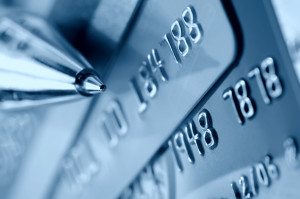 Finally, there’s a prepaid card that may deserve a place in your wallet.
Finally, there’s a prepaid card that may deserve a place in your wallet.
The American Express Serve card eliminates, or at least makes it easy to avoid, most of the niggling fees that make typical prepaid cards a bad deal:
- Users will be able to load the card with cash for free at 14,000 CVS and 7-Eleven stores, according to Stefan Happ, Amex’s senior vice president for U.S. payment systems. (The usual procedure involves a reload fee of $3 to $4, and it’s a hassle: you have to first buy a reload card at a store, then call a toll-free number or go online to add the money to your account.)
- ATM withdrawals are free at 22,000 MoneyPass network machines. The fee for out-of-network withdrawals is $2. That compares favorably to the $2.83 to $2.88 the average prepaid card charges, according to NerdWallet.
- There is a $1 monthly fee that can be waived if you use direct deposit (have paychecks or government checks loaded directly onto the card). The fee is also waived if you load at least $500 that month.
- Getting a card is free through the end of the year; after that, buying one will cost $2.95.
The card has a bill pay function and will have mobile check capture (where you can take pictures of checks to deposit them) later this year.
And get this…the card even has a savings account, called Reserve. You can set up one-time or recurring transfers that can help you save up for a purchase or get started on that all-important emergency fund.
American Express has a similar product called Bluebird, developed with WalMart, which provides free cash reloads at its stores. Not every community has a WalMart, however (shocking, I know)—New York City being one example of a WalMart-free zone. Bluebird has been singled out, by NerdWallet and others, as one of the best prepaid cards; Serve makes a good thing even better.
This is the first card I’ve seen that could actually be a viable alternative to a real checking account. That’s the audience Amex is targeting, of course: the tens of millions of Americans who are “unbanked” or “underbanked.” Many either can’t get an account or have given up on traditional banks because of all the fees. But because so many cards have hidden or less obvious fees—reload fees charged by third parties, or ATM surcharges—they often wind up paying more than they might at a consumer-friendly
“We want to be consumer advocates,” Happ told me. “We really put our money where our mouth is.”
Normally I’d dismiss that as PR happy talk. This card, though, delivers on the premise.
It’s also a decent alternative for delivering allowances to teenagers. Happ has set up two subaccounts for his daughters (who are over 13, the minimum age for such subaccounts), and delivers their monthly allowance to them via Serve cards.
The one bummer—it’s an American Express product, so it’s not accepted everywhere that Visa and MasterCard are. I haven’t experienced that as a huge problem; most stores I use accept Amex, and typically the only time I have to pull out an alternative I’m at a smaller independent store or a doctor’s office. But it’s something to keep in mind.